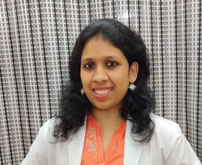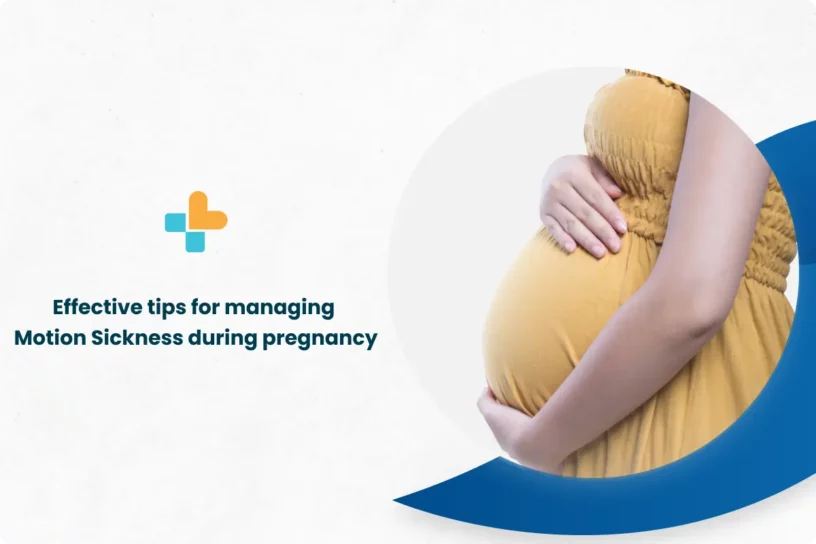Pregnancy can be an equally exciting and anxious journey, more so for first-time parents. Everyone usually knows the basic do’s and don’ts, but there’s much more to learn for a smooth pregnancy experience. Managing motion sickness is one such information most would-be mothers often don’t have. So nothing to worry about if you’re wondering “how to stop motions during pregnancy?”. Read the blog till the end to get the answers.
Why and When does loose motion occur during pregnancy?
Usually, the would-be mother experiences loose motion during the first trimester of pregnancy and just before going into labor. Hence, diarrhoea during the 1st trimester of pregnancy is more common than anyone thinks. Stomach upset during the pregnancy 2nd trimester and stomach upset during the pregnancy 3rd trimester are equally common.
Diarrhoea during pregnancy may be brought on by physiological or hormonal changes. Increased prostaglandin levels trigger contractions in the uterus and digestive tract.
Causes of Loose Motion Occurring During Pregnancy
There can be lots of reasons behind loose motion during pregnancy, such as:
- Pregnant women consume many types of vitamins for better health of the baby. Some of those may cause loose motion. Change the brand and see if the loose motion stops.
- The extra water consumed by the mother can be a reason.
- Often the reason is unrelated to pregnancy, such as food poisoning, a stomach infection, etc.
- A few components of a healthy diet may be responsible for loose motion. Such as consuming lots of fiber, grapes, berries, etc.
Remedies for Loose Motion During Pregnancy
Running to the loo multiple times a day can become a problematic affair. Make sure to call your doctor if you are having severe symptoms and your diarrhoea persists for more than a few days so they can examine you to see if anything else is wrong and discuss your treatment choices. Some common home remedies for loose motion in pregnancy to follow are as mentioned below:
Stay Hydrated: Staying hydrated is crucial, especially during pregnancy. Dehydration can occur as a result of diarrhoea, which rapidly depletes the body’s fluid reserves. Drink a lot of liquids to make up for what you are losing, particularly water. Along with that, drink electrolyte water as well as chicken or vegetable broth.
Manage diet: Consume foods that are simple to digest and that won’t agitate or provoke the digestive system or stomach. Eliminate dairy products, sweet beverages, coffee, tea, and carbonated beverages since these might exacerbate diarrhoea. A few food items to consider are bananas, rice, potatoes, pasta, bread, soup, etc.
Foods to eat: One should prefer simple foods, which are easily digestible and can absorb back water from the stool. Some suitable foods to eat are
- Oatmeal
- Rice porridge
- Coconut water
- Chicken or vegetable broth
- Bread
- Bananas
- Boiled potatoes
- Plain yoghourt
Foods to avoid: Look out for the foods which aggravate the situation. Such items are:
- Vegetables such as spinach, beans, cabbage, etc., and fruits such as peaches, apples, berries, apricots, and grapefruits.
- Coffee, tea, soda, or any carbonated drinks should be avoided.
- Fatty meat such as pork, veal, or beef.
- Fried food items must be avoided.
- Sugary foods such as candies, pastries, etc.
Give it Time: Loose motions or diarrhoea is a very common occurrence, irrespective of being pregnant or not. Most of the time, it gets away on its own, especially in case of mild infections. In the meantime, one can maintain a healthy diet and stay hydrated to accelerate recovery.
Medications: Taking medications for loose motion is usually not recommended during pregnancy, due to the risk of side effects. Medicines with Loperamide are considered safe and effective for the situation. However, make sure to consult the doctor before consuming any medications.
Consult your doctor: A pregnant mother experiences a series of changes in the body. Loose motions can be one of those, undoubtedly an irritating one. Mothers often tend to overthink “how to stop motions during pregnancy”. But it’s necessary to consult a doctor before taking any step or taking any medicine. The next part discusses when it gets urgent to consult a doctor.
When Should You Consult a Doctor: One should consult a doctor immediately if the following signs are observed:
- Darker urine than average.
- Extreme nausea, vomiting, or even both.
- While standing, there is vertigo.
- Racing heartbeat.
- Fatigue, headaches, and cold sweats.
Is Loose Motion During Pregnancy a Sign of Preterm Labour?
Yes, having loose motions during pregnancy is a sign of preterm labor. Before childbirth, the mother’s body prepares for it by bringing changes in the hormones. This mostly leads to the loosening of the muscles of the cervix, uterus, and rectum. Some medical experts think that diarrhoea clears the bowels, hence a method to make more room for childbirth. The mother is advised to stay hydrated and eat healthy foods, not take unnecessary stress.
Conclusion
Proper support from experienced people can make the pregnancy journey very easy and smooth. Are you worried about thinking “How to stop motions during pregnancy?”.At Ayu Health, you’ll get every kind of help to make your pregnancy easier. This includes access to a wide range of medical services and experts at affordable prices. What are you waiting for? For booking an appointment, call 636-610-0800.
Our Hospital Locations
Gynaecology Surgery Hospitals in Chandigarh | Gynaecology Surgery Hospitals in Bangalore | Gynaecology Surgery Hospitals in Jaipur | Gynaecology Surgery Hospitals in NCR | Gynaecology Surgery Hospitals in Hyderabad
Our Doctors
Gynaecology Surgery Doctors in Chandigarh | Gynaecology Surgery Doctors in Bangalore | Gynaecology Surgery Doctors in Jaipur | Gynaecology Surgery Doctors in NCR | Gynaecology Surgery Doctors in Hyderabad
About the Author

Dr. Nikitha Murthy B.S.
Dr. Nikitha Murthy B.S. is a renowned Gynaecologist currently practicing at Ayu Health, Bangalore.
He is s a Consultant with IVF Access at its Rajajinagar clinic. She has over 6 years of experience. Dr. Nikitha has a post-graduation (MS) in Gynaecology, DNB from the National Board of India, and a Fellowship in Reproductive Medicine. He also has vast experience in Post-Graduation (MS) in Gynaecology and DNB.




